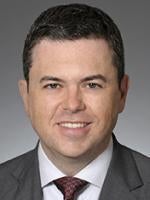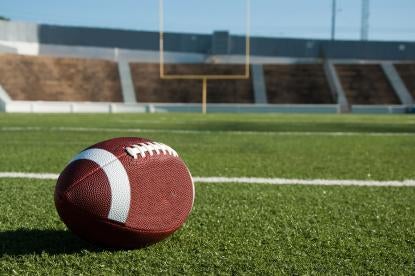Pro-Football, Inc., the owner of multiple U.S. service mark registrations for REDSKINS, REDSKINETTES, and WASHINGTON REDSKINS, took the somewhat unusual step last week of petitioning the U.S. Supreme Court for a writ of certiorari before judgment. See Pet. for Certiorari, Pro-Football, Inc. v. Blackhorse, No. 15-1874 (filed Apr. 25, 2016). Although such petitions are expressly allowed by U.S. Supreme Court Rule 11, they may be granted "only upon a showing that the case is of such imperative public importance as to justify deviation from normal appellate practice and to require immediate determination" in the Supreme Court.
The central issue is whether the REDSKINS marks can be cancelled pursuant to § 2(a) of the Lanham Act, 15 U.S.C. § 1052(a), on the basis that they may have "disparage[d] . . . persons, living or dead, institutions, beliefs, or national symbols, or [brought] them into contempt, or disrepute" at the time those registrations issued. The various REDSKINS marks were registered in 1967, 1974, 1978, and 1990. None of the marks were challenged prior to the time they were registered, and no petitions for cancellation were filed for 25 years after the first registration issued.
The Initial Harjo Challenge
Jump forward to 1992, when Suzan Harjo and six other Native Americans successfully petitioned the USPTO to cancel the registrations on the ground that the REDSKINS marks disparaged Native Americans at the times they were registered. The case ultimately ended up before the Court of Appeals for the DC Circuit, which held—without reaching the merits of the disparagement issue—that the petitions to cancel must be dismissed on a finding of laches. The Supreme Court denied the Harjo petitioners' petition for certiorari.
The Current Challenge
In 2006, while Harjo was pending, Amanda Blackhorse and four other petitioners filed a separate petition to cancel the REDSKINS registrations. The grounds were the same: the Blackhorse petitioners asserted that registrations for the REDSKINS marks never should have issued because Native Americans would have found the term to be disparaging at the time the registrations were issued. In 2014, a divided Trademark Trial and Appeal Board again ordered the cancellation of the REDSKINS registrations when the majority concluded that a "substantial composite" of Native Americans found the Redskins' name disparaging between 1967–1990. Pro-Football challenged the cancellations on constitutional and statutory grounds by filing an action in the Eastern District of Virginia, which sided with the Blackhorse petitioners and ultimately held that § 2(a) "does not implicate the First Amendment" because "cancellations do not burden, restrict or prohibit" speech and that registration is "government speech" that is "exempt from First Amendment scrutiny." At the same time, the district court rejected Pro-Football's claim that § 2(a) is impermissibly vague and its argument that the nearly 50-year delay between the USPTO's registration of the first REDSKINS mark in 1967 and the cancellation of that mark in 2014 deprived the team of procedural due process. Pro-Football appealed the decision to the Fourth Circuit, where the matter is now fully briefed and awaiting a date for oral argument.
The Lee v. Tam Petition
So, why the request for the Supreme Court to hear the case before the Fourth Circuit decides it? The answer lies in a case that does not directly involve Pro-Football or its REDSKINS marks: Lee v. Tam, No. 15-1293 (Pet. for Certiorari filed Apr. 20, 2016). Simon Tam applied to register THE SLANTS for his all Asian-American band. The USPTO refused registration after finding that the mark is disparaging to persons of Asian descent. After the Trademark Trial and Appeal Board affirmed the refusal, Mr. Tam appealed to the Federal Circuit, where an en banc court held that the disparagement clause in § 2(a) is facially invalid under the First Amendment because it imposes impermissible, content-based and viewpoint-discriminatory burdens on protected speech. On April 20, 2016, the director of the USPTO filed a petition for certiorari, asserting that § 2(a) merely directs the USPTO not to provide the benefits of federal registration to disparaging marks and is therefore not an unconstitutional restriction on speech.
The REDSKINS Petition
In its own petition, Pro-Football states it would prefer that the Court decline the USPTO's petition in Tam. This would effectively leave the ruling in the Tam case to stand, at which point the Fourth Circuit may or may not consider it to be persuasive authority in resolving Pro-Football's case. But with the Tam case procedurally ahead of its own, the owner of the REDSKINS marks wants to ensure it is part of the huddle if the Court does decide to take up the issue and decide whether the disparagement clause of § 2(a) is unconstitutional. To support its position, Pro-Football asserts that its case is "an essential and invaluable complement to Tam" and that a pre-judgment review of its case would allow the Court to consider the First Amendment question "in the full range of circumstances, including both initial denials of registration [as in Tam's case] and after-the-fact cancellations [as in the REDSKINS case]."
Pro-Football further asserts it can assist the Court by presenting, not only the question of whether § 2(a)'s disparagement clause violates the First Amendment (the issue presented in Tam), but also whether that clause is impermissibly vague and whether the government's decades-long delay between registering a trademark and cancelling the registration violates a registrant's right to due process. Pro-Football asserts that "[h]umans are not up to the task of evaluating whether a term might have been 'disparaging' to a 'substantial composite' of a particular group 50 years ago or more." The petition also references the fact that the issue is recurring (citing a recent petition to cancel registration for the Cleveland Indians' logo); cites numerous arguably inconsistent determinations by the USPTO as to what constitutes a disparaging mark (e.g., WILD INJUN was registered, while registration for URBAN INJUN was denied under § 2(a)); and asserts that the government's position would allow the USPTO "carte blanche to change its mind and retroactively cancel registrations anytime anyone files a petition," which also raises due process issues.
Additionally, Pro‑Football asserts that the Court can avoid the constitutional question all together by narrowly construing "persons, living or dead" in § 2 to encompass only identifiable individuals or juristic persons—not groups as a whole. Pro-Football asserts that this interpretation comports with the Lanham Act's definition of "persons" provided in 15 U.S.C. § 1127 and that a contrary interpretation would have to encompass any amorphous group of persons, including, for example, birders, bookworms, and billionaires.
Ultimately, Pro-Football asserts that the additional arguments in the proceedings below and its status as a long-time registrant make it better situated that Tam to challenge § 2(a) and that the Supreme Court, if it grants Tam's petition, should grant Pro-Football's as well.





 i
i

